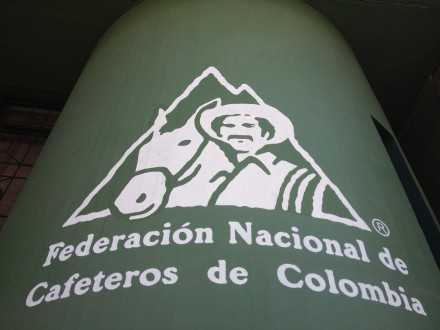BOGOTA, COLOMBIA – The “Colombia, Sustainable Coffee” ( CCS ) program, a unique initiative combining coffee and peace, begins its second phase after a successful start. At a time when peace tops the Colombian agenda, peace projects led by Colombian Coffee Growers Federation (FNC) demonstrate the importance of institutional-level programs in the rural sector.
National and international partners, including the Douwe Egberts Foundation, remain committed to the program and have pledged their support for Phase II, which will benefit 800 more families.
CCS is a public-private partnership that, with this additional effort, will reach 1,400 coffee growing families affected by violence. It is designed to foster a new beginning by enabling them to return to their homes and start over with sustainable coffee farms.
During the project’s first stage, which ran between September 2009 and November 2012, a total of 600 families benefitted from the program. Phase II, which will last 24 months, will add an additional 800 families to the program.
While Phase I focused on three basic components of sustainability (social, economic and environmental), Phase II is designed to strengthen and further develop communities. This includes promoting peaceful coexistence and re-establishing productivity with sustainable coffee production systems.
Institutional cooperation and a comprehensive approach ensures projects such as CCS yield concrete and measureable results, effectively contribute to peace in the region and enhance the wellbeing of communities. It also enables participants to climb the value chain to capture markets, increase incomes and become economically sustainable in the future.
The project is an example of the importance of security as a key factor of competitiveness and the need for public and private entities to reach isolated or marginalized regions.
Phase II will continue to benefit the same five municipalities (Agustín Codazzi, Chiriguaná Becerril, Curumaní and La Jagua de Ibirico) in the Perijá region in the department of Cesar, at a lower cost.
Phase I cost 3.4 million Euros to implement while Phase II only requires 410,587 Euros.
CCS focus on area heavily affected by armed conflict and illicit crops
Perijá’s s problems began in the 1990’s when armed groups linked with drug trafficking took up residence and began planting illegal crops. At least 70% of project participants have been directly affected by violence. Many have received direct threats, lost family members or been forced to take shelter from the fighting between armed groups.
Making matters worse, 98% of households lack basic necessities including water, sewage and electricity. Low education levels and poor infrastructure have also negatively impacted them.
During Phase I of CCS, organizers helped develop conditions that allowed farmers to return to their land, establish peace, support sustainable development and eradicate poverty.
Phase II will focus on strengthening previous results and expanding outreach to more families in order to promote self-empowerment, community development and cooperation between various local and regional entities.
Farmers will receive training, technical assistance and financial support to enhance productivity and lessen environmental impact through the adoption of sustainable coffee practices required for UTZ certification.
These measures will positively impact the local economy by improving access to better resources and investment markets and by reducing vulnerability to poverty, violence and natural disasters.
FNC and extension workers facilitate peace process in the fields
The FNC’s Extension Service (ES) has greatly contributed to the success of the CCS program. Extensionists added peacekeeping to their list of services they regularly provide to farmers.
Their achievements reinforce the findings of a recent study by the Andes University and the Free University of Brussels, Belgium that found organizations such as the FNC and its extension service help mitigate the negative effects of violence.
Douwe Egberts Foundation
DE Master Blenders 1753 established the Douwe Egberts Foundation in 2002. The organization aims to improve the lives of small coffee and tea growers. Over the last ten years, the foundation has strongly contributed to the sustainability of farmers in these sectors. For more information, visit www.defoundation.org.
About the Colombian Coffee Growers Federation (FNC)
The FNC is a not-for-profit organization founded in 1927 that represents over 500,000 coffee growing families. Considered one of the largest rural organizations in the world, its mission is to improve the well-being and the quality of life of Colombian coffee producers.


















